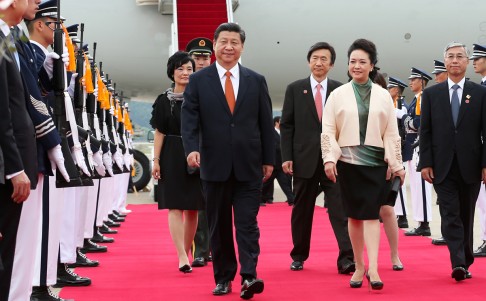
Xi Jinping arrives in Seoul with huge business delegation as Beijing aims to boost trade ties
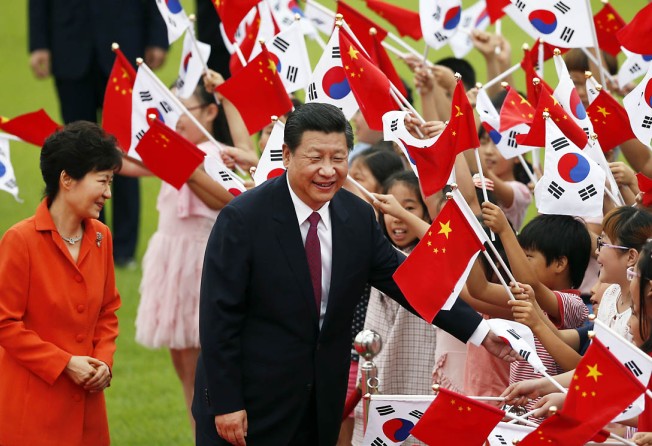
Xi Jinping has arrived in Seoul accompanied by a huge business delegation on his first trip to South Korea as president, as Beijing aims to elevate trade ties.
During his two-day visit, Xi will meet his South Korean counterpart, Park Geun-hye, and attend a business forum. Xi also will meet senior management from South Korean global electronic giants Samsung and LG.
Representatives from more than 100 Chinese companies will attend the business forum.

Several business deals are expected to be signed. For example, Chinese electronics firm TCL will sign a memorandum of understanding with SKC, which produces polyester films.
Jin Bosong, a senior researcher with the Minister of Commerce, said many senior executives from China's leading technology companies were joining the delegation because of the great potential for cooperation in the development in information technology.
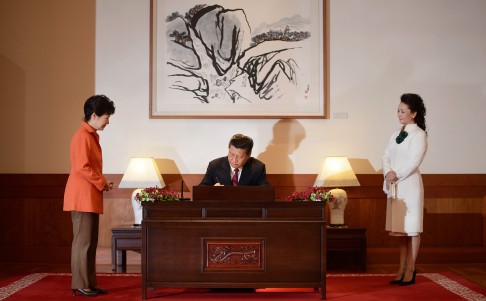
Jin said China had advantages in the development of e-commerce and internet-related businesses, citing Alibaba and Baidu as leading firms in the area, while South Korea had advantages in electronics, as shown by Samsung.
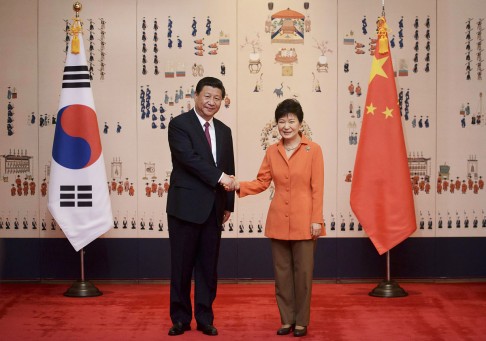
Cai Jian, a Korean affairs expert at Fudan University, said the economic deals could be used to boost Xi's trip.
"Politically, South Korea is still close to the United States," he said.
"By stepping up trade and economic cooperation, it can help project that the two nations have made some concrete achievements during the trip."
Trade between China and South Korea passed US$270 billion last year, up 7 per cent on the year before.
The trip will see Xi breaking a long tradition by visiting Seoul instead of Pyongyang during his first trip to the Korean peninsula as president.
Xi's trip comes amid heightened security concerns. North Korea fired two short-range projectiles into its waters off its east coast yesterday.
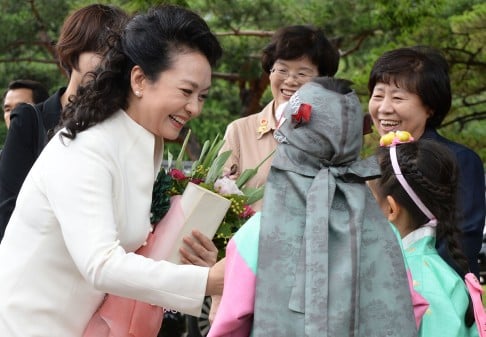
The Japanese cabinet on Tuesday approved a reinterpretation of its constitution to allow the country's military to aid allies in battle.
Chinese foreign ministry officials said Xi and Park would discuss Japan and regional security.
Xi has broken a long-held tradition by visiting Seoul instead of Pyongyang during his first trip to the Korean peninsula as Chinese president, signifying the growing importance of Seoul to China's diplomacy.
Observers said the two-day trip was expected to send out a strong message to North Korea to refrain from provocation, even though officials stressed that the visit was not targeted at any third country.
China has been regarded as Pyongyang's staunchest ally. China supported North Korea in the 1950-53 Korean war, and the two nations signed a friendship treaty in 1961, under which China pledged to give assistance to Pyongyang against outside attack. Beijing only established diplomatic ties with Seoul in 1992.
Xi's predecessors Hu Jintao and Jiang Zemin visited the North before the South during their trips to the Korean peninsula.